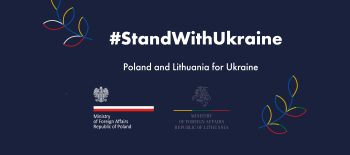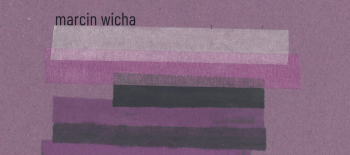Julian Jozef Antoniszczak, known as Julian Antonisz (1941-1987), was an icon of Polish ‘Non-Camera Animation’ who won awards at film festivals both in Poland and abroad. Antonisz was also an inventor, a composer, and one of the founders of the Cracow Animated Film Studio.
In the spring of 2021, we screened his cult film ‘How a Sausage Dog Works’ ’at ‘An Ordinary Day Film Festival’, in Stockholm, where we promote art and experimental films.
As a family member, what could you add to introduce Julian Antonisz to the Swedish audience?
Malwina: The most unique thing about my fathers’ films is how rich, full and detailed they are. Even though there are a few other artists who made direct on-film animations, those were mostly abstract. I think Julian Antonisz is the only artist/filmmaker who was able to create camera-less, detailed, narrative films that tell specific stories. He was able to incorporate highly artistic and experimental technique into narrative film craft.
As a Polish avant-garde filmmaker and promoter of the unique animation technique called ‘Direct Animation’ (non-camera), Antonisz formulated his ‘Non Camera Manifesto’ in 1977. What was his main inspiration in writing this manifesto?
Malwina: My father’s background was in Fine Arts, he graduated at the Academy of Fine Arts in Kraków where among others he studied printmaking techniques. At the Academy he also studied animation and he considered film to be an artform just like painting or printmaking. An oeuvre created by the artist’s hand. Camera-less animation allowed him to work on films just like a painter works on a canvas, in direct contact. The Manifesto summed up his views on the film as an artform. Very important aspect of this vision was artistic independence, something he highly valued as quite an eccentric individual. Camera-less animation allowed freedom, without a film crew, laboratory etc. In Manifesto he also wrote about the possibility of using printmaking techniques directly on film, like wood cutting. One of his homemade film apparatus is an automatic film printer.
How did the non-camera technique affect the creation of this Antonisz film? Did he work only with this specific technique?
Malwina: After The Non-camera Manifesto my father made only camera-less animations. Before he experimented with different mixed techniques, some films were not animated but with actors.
Danuta: Antonisz developed the non–camera technique to a very high and a very unique level.
Film production is an industry, involving a lot of people. Antonisz’s goal was to be independent from the industry, to become the industry himself. He wanted to be able to do everything by himself, to be responsible for the whole movie: the script, animation, music, editing and the copies of the film for screening. To create the movie the way the painter is creating a piece of art. To achieve his goal, he built a specific machine for each movie. He experimented with sound, animation, and color.
In the year 1986 he almost achieved his goal. In Oberhausen, during the film festival, he screened an original movie, done directly on the film, “ Światło w tunelu” (The light in the tunnel) and performed the soundtrack on piano himself. Unfortunately he died eight month later.
Danuta, you created a lot of films together, how did this influence your family life?
Danuta: It wasn’t easy to take care of the house, our daughters and find time for work on the movie. I had my worksite at home and I was working when children were at school and in the evening, when they were asleep. Julek was working all the time, in the studio, and at home, day and night. I believed in his ideas, we had the same priorities, and it was always a deadline to finish the movie, so it had to go smoothly, even if we didn’t have enough sleep sometimes.
Where did Antonisz find the inspiration for his films?
Danuta: He lived and created his movies during a special political atmosphere, in the country run by communists. Thanks to a great sense of humor and sensitivity to the absurdity of everyday life in Poland at this time, he was able to tell these everyday stories in an ironic and creative way. His ability to wonder and fresh insight enabled him to find the topics for the movies almost on a daily basis.
Malwina: His later films, The Non-Camera Chronicles, an animated parody of Polska Kronika Filmowa (weekly film newsreel screened in Polish cinemas) was inspired by the reality or sur-reality of life in communist Poland. His early films were mostly inspired by different areas of his interests: science, mechanics, construction, chemistry, music. I personally also see some influence of French Nouvelle Vague in the early films. My father travelled to Paris in the 60s, I guess for someone living behind The Iron Curtain it must’ve been an important experience.
If Antonisz were alive today, with the development of new film technologies including virtual reality, 3d technology and so on, what do you think he would focus his interest on?
Malwina: I often ask myself that. I see quite a few possibilities, I can imagine him staying completely analogue, angrily living as a recluse against the digital world, maybe trying to promote an analogue Facebook carved on wooden boards or something like that. But he could also perfectly fit in the modern world with his interest in technology. I imagine him reconfiguring computers to create tools for his art. Some kind of an artist/hacker.
Ryszard Antonius, Julian’s brother, was also an animator, except that he was based here in Stockholm since the 1980’s. Could you tell us a little more about him, and if the Antonisz brothers ever collaborated or inspired each other?
Malwina: Before moving to Sweden in the 80s. Ryszard was also working at the Krakow Film Studio (Studio Filmów Animowanych SFA). It was quite a special place, state funded but focused on artistic expression not the profit. I guess it was only possible at that specific time. Julian was one of the founders of the Studio and Ryszard joined later, initially as his assistant and later as an independent film director. His films were unique and created with different animation techniques but not camera-less. I believe they even competed a little bit, especially at film festivals.



